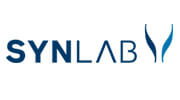LAB HOURS: MON - THU and SAT : 9:00 AM to 9:00 PM
FRI and SUN : 9:00 AM to 6:00 PM

Laboratory Diagnostics of Allergic Diseases
FML seminar, December 14, 2013: Autoimmune Disorders

Laboratory Diagnostics of Allergic Diseases
Harald Renz, MD, Professor and Director
Institute of Laboratory Medicine
University Hospital Gießen and Marburg GmbH
Faculty of Medicine, Philipps-Universität Marburg
Allergies and asthma are considered as the “epidemic of the 21st century”. Epidemiological studies indicate a dramatic increase in prevalence and incidence of allergic conditions, particularly within developed countries around the world. However, this trend can now be also observed in the economically emerging regions around the world. The highest prevalence is observed for hay fever / allergic rhinitis, affecting about 15% of the population. The second highest prevalence is observed for bronchial asthma with an incidence of around 7% (higher in the paediatric population than in adults). In addition, a high prevalence of food allergic reaction is also being observed.
Since these diseases have a strong socio-economic impact in the respective society, it is important to provide fast and accurate laboratory diagnostics allowing the implementation of effective treatment and prevention strategies.
Key components of laboratory diagnostics are:
Measurement of total IgE
Measurement of allergen-specific IgE
Detection of allergen-specific IgG/IgG4 antibodies (particularly directed against food)
Evaluation of Tryptase as a marker for mast-cell activation/degranulation
All of these assays are readily available on automated and integrated laboratory systems. The cornerstone in diagnostic procedure is certainly the measurement of allergen-specific IgE antibodies in the patient.
In this area several new developments are at present being observed, which will be also discussed during the presentation:
Availability of recombinant allergens for a component specific diagnostic
Establishment of clinically relevant cut-off values to ascertain clinical relevance of allergen-specific IgE
The availability of recombinant allergens for the assessment of clinical relevant cross-reactivity and oral allergy syndrome (OAS)
Assessment of IgE antibodies against microbial components, including bacterial superantigens as risk markers for clinical severity particularly in atopic dermatitis.

Lab hours
MON - THU and SAT 9:00 AM to 9:00 PM | FRI and SUN : 9:00 AM to 6:00 PM













